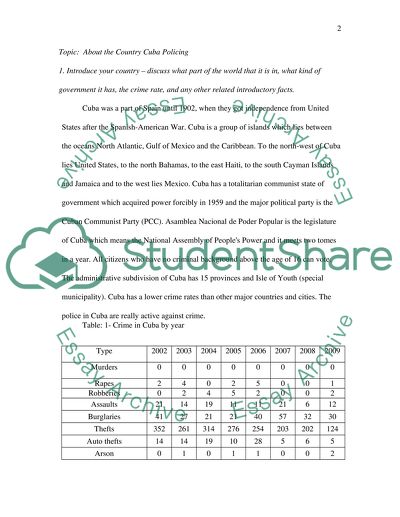Cite this document
(“About the Country Cuba Policing Essay Example | Topics and Well Written Essays - 1250 words”, n.d.)
Retrieved from https://studentshare.org/law/1425416-about-the-country-cuba-policing
Retrieved from https://studentshare.org/law/1425416-about-the-country-cuba-policing
(About the Country Cuba Policing Essay Example | Topics and Well Written Essays - 1250 Words)
https://studentshare.org/law/1425416-about-the-country-cuba-policing.
https://studentshare.org/law/1425416-about-the-country-cuba-policing.
“About the Country Cuba Policing Essay Example | Topics and Well Written Essays - 1250 Words”, n.d. https://studentshare.org/law/1425416-about-the-country-cuba-policing.


